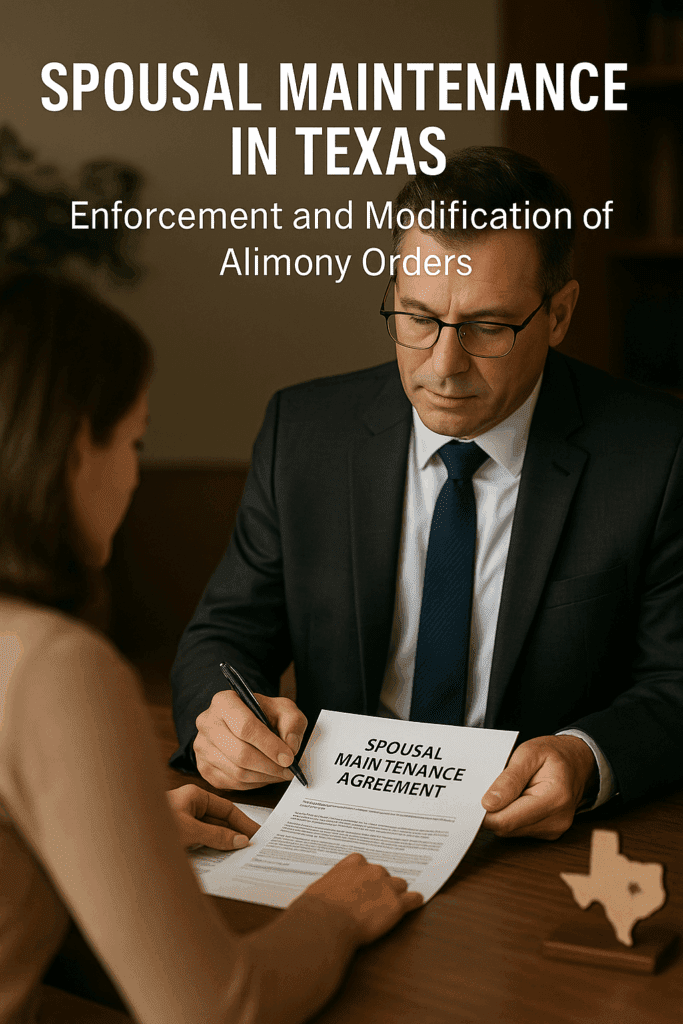Spousal maintenance — often called alimony — can be one of the most misunderstood aspects of divorce. In Texas, it’s not automatically granted, and both enforcement and modification of maintenance orders follow specific legal standards.
At Webb Family Law, we help clients across North Texas understand their rights and obligations under Texas spousal maintenance laws, ensuring fair outcomes and compliance with court orders.

Who Qualifies for Spousal Maintenance in Texas
Under the Texas Family Code §8.051, a court may order spousal maintenance only if one spouse lacks sufficient property or income to meet their reasonable needs after divorce.
Eligibility generally applies when:
- The marriage lasted at least 10 years, and the requesting spouse cannot support themselves;test
- The spouse seeking support has a disabling physical or mental condition;
- The paying spouse committed family violence; or
- The spouse must care for a disabled child requiring ongoing supervision.
Spousal maintenance is meant to be temporary support, not permanent income.
Duration and Limits on Maintenance
The length and amount of maintenance depend on the length of the marriage and the recipient’s circumstances. According to Texas Family Code §8.054:
- Up to 5 years for marriages lasting 10–20 years
- Up to 7 years for marriages lasting 20–30 years
- Up to 10 years for marriages over 30 years
Courts can modify or terminate maintenance if the recipient remarries, cohabitates, or experiences a substantial change in circumstances.
Modifying a Spousal Maintenance Order
Either party can seek modification when circumstances change significantly — for example, a job loss, serious illness, or major income shift. The requesting party must prove that the change is material and substantial, under Texas Family Code §8.057.
The modification process involves filing a motion with the court and presenting evidence of the changed financial situation.
Enforcing Spousal Maintenance Orders
When a spouse fails to pay court-ordered maintenance, Texas courts may enforce the order through wage garnishment, contempt proceedings, or money judgments. Under Texas Family Code §8.059, a delinquent spouse may face fines, attorney’s fees, or even jail time for willful nonpayment.
Webb Family Law helps clients file enforcement actions and defend against unfair or improper claims, ensuring compliance and fairness on both sides.
Protecting Your Rights and Obligations
Spousal maintenance can significantly affect your post-divorce financial stability. Whether you’re seeking, modifying, or enforcing a support order, experienced legal guidance is essential.
📞 Contact Webb Family Law today to discuss your case and learn how Texas law applies to your situation.








0 Comments